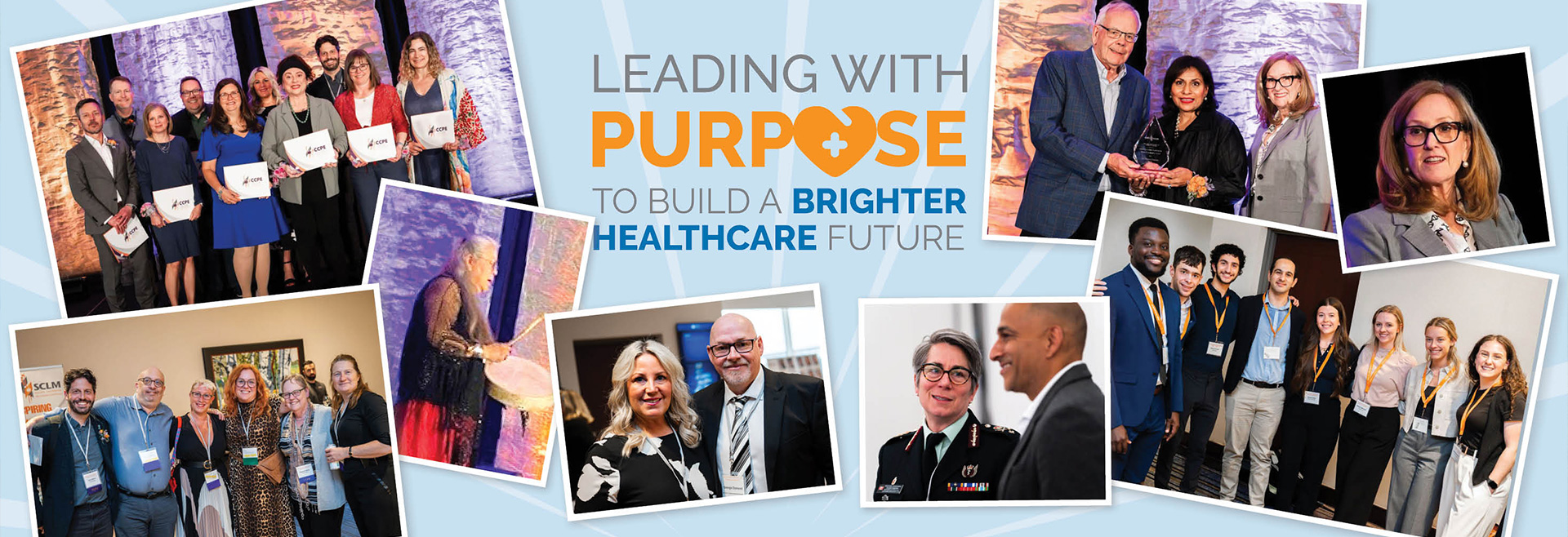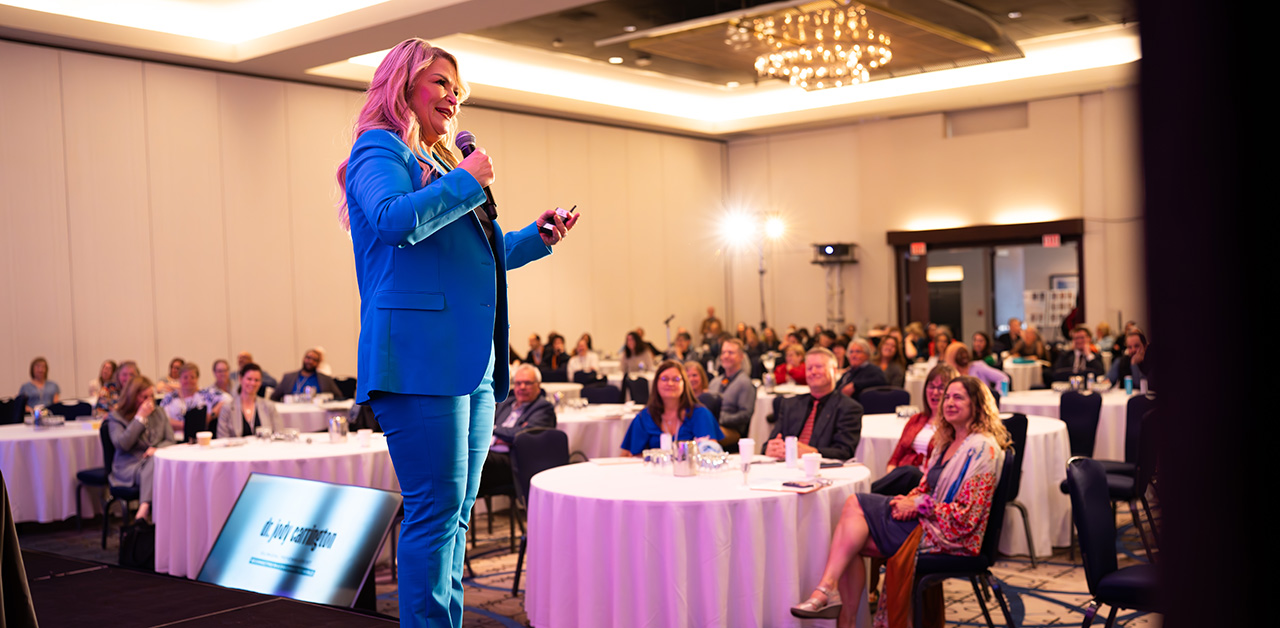

CCPL2025
Leadership reset: leading with courage, connection, resilience and vision
A keynote address by Jody Carrington
![]()
Giuseppe Guaiana, MD, PhD

This powerful, raw, and engaging talk delivered a stark message: we are not facing a mental health crisis, we are facing a crisis of loneliness and disconnection. Jody Carrington, PhD, a clinical psychologist and public speaker who argues for authentic human connection, challenged the audience to rethink their assumptions about burnout, emotional health, and how we serve others. At the heart of the message is a simple but urgent reminder: humans are neurobiologically wired for connection. Yet, in a world flooded by noise, technology, and distraction, we are more disconnected than ever. The cost is staggering – rising rates of anxiety, depression, suicide, and a pervasive sense of futility.
Carrington painted a vivid picture of the everyday struggles of clinicians, parents, and leaders alike — juggling endless responsibilities, overwhelmed by data, and barely holding it together under the weight of expectations. She described the all-too-familiar cycle: a constant flood of notifications, stress, and emotional exhaustion that leads to compassion fatigue, and, eventually, burnout, not because of the work itself, but because the well of emotional resources has run dry. If the caregivers, doctors, nurses, teachers, parents, are not okay, those they care for cannot thrive.
Central to the talk was the concept of acknowledgement of our work as “holy.” It is not about fixing problems, offering solutions, or apologizing. It is about bearing witness, holding space, and simply saying, “Tell me more.” The act of truly seeing and hearing another person — without judgement, distraction, or the rush to fix — is rare and transformative. Although often dismissed as a “soft” skill, this is the core of leadership, parenting, health care, and community. Without it, we are reduced to transactional interactions that leave us and others feeling unseen and disconnected.
Carrington underscored that emotional regulation is the key: the ability to stay calm in times of distress, to model calm for others, and to restore the nervous system when it is overwhelmed. She offered practical advice: drop your shoulders, release your jaw, regulate your breath, and remember your capacity to connect. Small, consistent moments of acknowledgment can change lives, both those of the people we serve and our own.
The talk closed with a profound reflection: we are all just here walking each other home. No matter how skilled or educated we are, we cannot undo generational trauma or systemic inequity alone. But by being present, acknowledging the humanity of others, and tending to our own emotional regulation, we create ripples of healing in a fractured world. Carrington’s final message: you matter more than you know. The work you do is holy. But remember, you are not superhuman. Care for yourself, because the people you love and serve are watching you, and learning from you, every step of the way.
Author
Giuseppe Guaiana, MD, PhD, FRCPC, CCPE, is an associate professor of psychiatry, Western University; chief of psychiatry, St. Thomas Elgin General Hospital; director, Extended Campus Program, and clinical director, North of Superior Program.
Correspondence to: giuseppe.guaiana@gmail.com